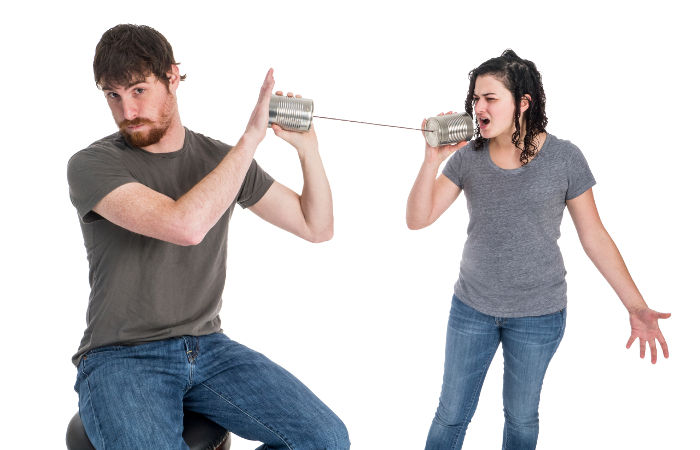Love Assumptions – How to Know for Sure

The way that we show love is learned, not universal. You can't expect to get love back from people the same way that you express it. I see this issue repeatedly in marriage counseling. Both partners expressing love to their partner in the same way that they themselves wish to be loved. It makes sense to assume that since I want love in a certain way that my partner must want it that way too. But love for others isn't the same as love within ourselves.
Case in point – a young couple that I recently had the pleasure of doing therapy with. They were struggling to get along. The man grew up in a touchy feely household with lots of “I love you's” and hugs. He wanted to be loved by being touched, hugged, kissed, and by hearing her love professed to him with words.
She grew up in a loving household, too, but the love was expressed differently. Her family showed their affection by helping each other and by doing things within the vicinity of each other. She wanted to be loved by seeing him doing tasks for her and by being in the same room.
For years he was overly touchy and used kind words and grew angry and frustrated as she continued to feel unloved.
She cooked and cleaned and sat next to him during the evenings and wondered how it is that he could feel so unimportant.
John Grey, author of the famous Men are from Mars, Women are from Venus series has stated for some time that men and women literally speak different languages. In instances like with this young couple, his words ring true.
If only this couple could learn to hear the language of their partner.
It was slow going at first, as each was resistant to the others expressions. Over time they grew closer together and got better at speaking each others hidden love languages.
Each partner needed to pay more attention to their own attempts to show love and to try to translate those love gestures into their partners language before expressing them and to watch out for a language that could be going unnoticed.
Just knowing that his wife means “I love you” when she cooked and cleaned meant a lot more to him than before. And now knowing that his hugs and kisses mean “I love you” helped her feel more important.
Taking away from this couple's story, don't forget that we all express and experience love in different ways and with different signs, signals and languages. Each one of us is unique. This is true for friendships as well – love languages are not only for romantic relationships.
To find out more about your partner and the ways that they feel loved – sit down and ask them.
Written by Brad Messenger, LMSW.
Symptom Checker
